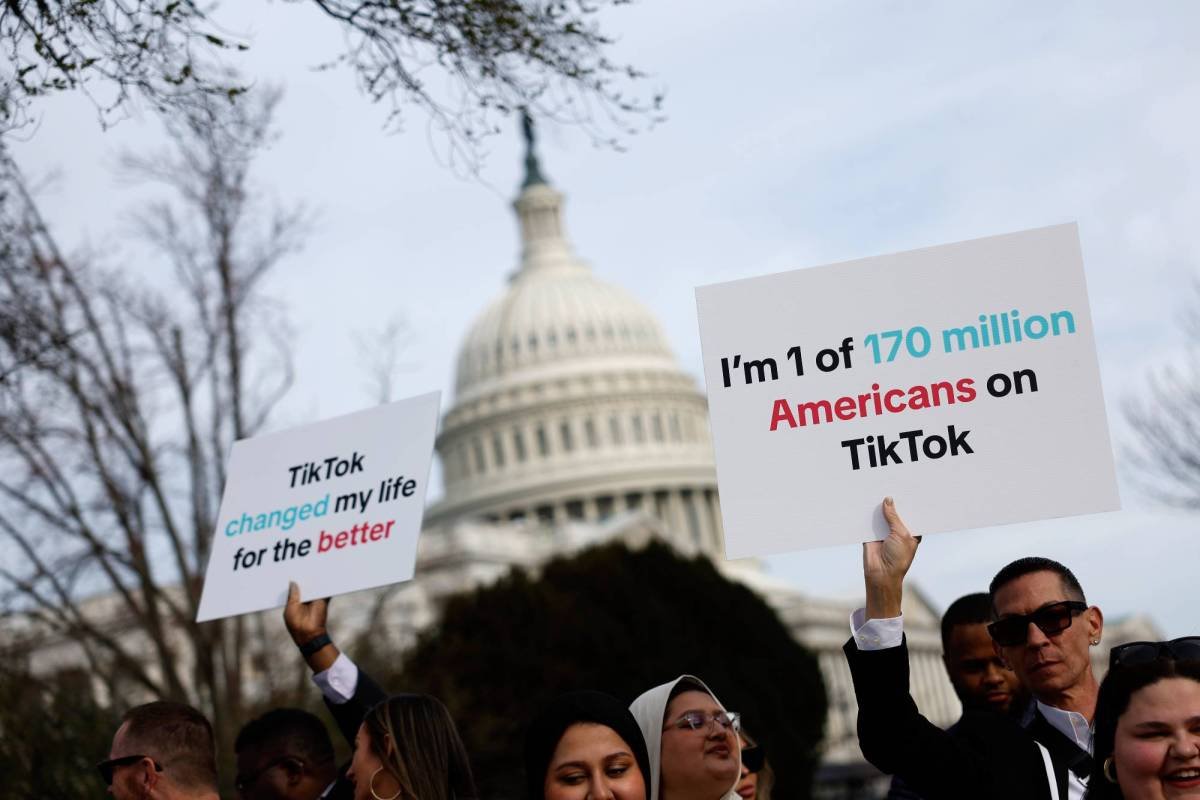The House voted on Wednesday in favor of a bill to require TikTok to sever its connection with parent company ByteDance or face a ban, moving the legislation forward with surprising speed.
President Joe Biden has already said that he would support the legislation, but TikTok faces an uncertain fate as the bill heads to the Senate.
The bill received bipartisan backing with a 352-65 vote.
TikTok said in a statement, “We are hopeful that the Senate will consider the facts, listen to their constituents, and realize the impact on the economy, 7 million small businesses, and the 170 million Americans who use our service.”
The bill’s supporters decline to describe it as a “ban,” but if passed it would create two possible outcomes.
In one scenario, TikTok strikes a deal to split with its Chinese ownership within six months and continues to operate in the U.S. under that arrangement.
In the more dire outcome, ByteDance refuses to sell TikTok and it becomes illegal for software marketplaces like Apple’s App Store and Google Play to distribute the software in the U.S.
TikTok Policy (@TikTokPolicy) released a statement on the House vote, stating: “This process was secret and the bill was jammed through for one reason: it’s a ban. We are hopeful that the Senate will consider the facts, listen to their constituents, and realize the impact on the economy, 7 million small businesses, and…”
This echoes TikTok’s previous statements about the potential ban and its potential consequences for the app, its users, and small businesses.
The push to force ByteDance to sell TikTok originated during the Trump administration as an executive order.
At the time, companies like Oracle and Microsoft showed interest in acquiring TikTok, but the efforts ultimately fell through when former President Donald Trump left office.
In hindsight, Microsoft CEO Satya Nadella described the whole ordeal as the “strangest thing I’ve ever worked on.”
Since then, Trump has changed his stance on the TikTok ban, citing concerns about Facebook’s potential monopoly on the social media market.
In an interview with the Washington Post, Trump stated, “Without TikTok, you can make Facebook bigger, and I consider Facebook to be an enemy of the people.”
Other Republican legislators also voiced their opposition to the TikTok ban, including Representative Thomas Massie (R-KY) who stated that the bill could also be called the “Facebook Protection and Enhancement Act.”
On the other side, Representative Sydney Kamlager-Dove (D-IL) expressed concerns about the impact of the bill on creatives and small businesses.
She stated, “Creatives, artists, content creators, and businesses in my district will get caught in the crossfire of this bill and deserve better than federal overreach as a substitute for a thoughtful and incisive solution.”
This echos concerns that TikTok itself has raised, as they have continually lobbied against the potential ban since last year.
Despite the House’s vote, the fate of the bill in the Senate is still uncertain.
While many senators have yet to weigh in, Senator Rand Paul (R-KY) has already expressed his opposition to a potential Senate version of the bill.
He stated, “I don’t think Congress should be trying to take away the First Amendment rights of [170] million Americans.”
Without a companion bill in the Senate, the House’s efforts could potentially stall out.
It’s worth noting that China has also stated its opposition to a forced sale of TikTok, exercising its rights after a recent update to the country’s export rules.
The bill’s swift progress out of committee last week to a full House vote took TikTok by surprise.
The company quickly rallied its 170 million U.S. users, urging them to call their representatives and voice their support for the app.
TikTok’s CEO, Shou Chew, also visited Capitol Hill to drum up opposition to the bill before Wednesday’s vote.
This story is developing…








